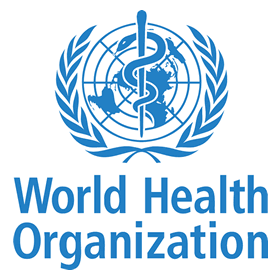Psychiatry

- By Prof. Abdulkarim Mustafa Awadh
- 17-February-2013
Psychiatry is a specialty that relates to all aspects of society. You often find that the opinion of a psychiatrist is required on a variety of societal issues and phenomena. If a crime occurs, what is the opinion of psychiatry? If a phenomenon spreads, how does psychiatry explain it? If we want to investigate the impact of the communications revolution on society, what are the psychological repercussions? If some women tend to buy excessively, then there must be psychological reasons.
People often turn to a psychiatrist to ask him for advice and be enlightened by his opinion. Here one of them mentions this situation in a funny way, saying that because they imagine that he is wise, that is, he has wisdom, and all of his wisdom is because he has good judgment on matters, and this good judgment on matters comes from the fact that the psychiatrist has a lot of experience, and this many experiences accumulated from his bad judgment on matters.
Tell me what you know in this life that does not involve psychiatry. You will not be able to deal with yourself or others unless you have psychological awareness. You need it in your office, factory, farm, street, club, home, and even in your bedroom.
From a clinical standpoint, psychiatry differs from other specialties. He does not deal with the patient only as a medical condition but also views the patient as a reflection of various and multiple influences, including organic, psychological, and social. Therefore, if you have a patient with a tumor or other illness, you can take him to a Western or Eastern country for treatment, but in the case of mental illness, whoever treats the patient must be familiar with the patient’s environment and culture.
One of the problems of psychiatry is that the percentage of people who have psychological problems is no less than 30% of society, and yet only about 15% seek help. Unfortunately, this leaves neglected cases in homes without help, which leads to their deterioration and exacerbates their problems for the patient and society.
Often a person comes complaining of a life problem that affects his life but does not reach the level of mental illness. This is why psychiatrists have a diagnostic axis called the V-Code on which diagnoses are placed that represent merely psychological problems that do not reach the level of mental illness. The problem may end by simply talking about it and discussing it without medication.
There are cases of delusion of illness, such as delusion of organic diseases. Some psychiatric patients may become addicted to hospitals, creating a diagnostic dilemma. A person may imagine that her or his appearance is unpleasant or that his or her nose is huge, but it is exactly the opposite.
Unfortunately, many psychiatric patients are lost in clinics for specialties other than psychiatry. Unjustified tests and investigations may be carried out, as studies have shown that 20% of cardiac catheterization patients are panic patients, which is a type of acute psychological anxiety. The patient’s abdomen may be opened or plastic surgery performed without medical justification.
The relationship between the doctor and the patient can be described as an effective substance in the therapeutic process, and this relationship has a pivotal role in the healing process, as it helps the patient bear the side effects of the medication and makes him more attached to his treatment program. The prescription written by the junior doctor, for example, maybe the same as that written by the famous senior doctor, but the trust that the patient places in the senior doctor makes the placebo effect, response to treatment, and tolerance to side effects, higher.
One of the prominent complaints in psychiatry is delusion, which are fixed false beliefs that cannot be refuted by logic and evidence. This usually occurs in schizophrenia or manic episodes. The delusion can affect all ages, but it increases during adolescence. For example, a person may imagine that his wife is cheating on him, but this is not true. He may imagine that he is the Awaited Mahdi, or he may imagine that she is the Virgin Mary.
One of the famous complaints in psychiatry is anxiety, which is an irrational fear in which the patient always expects a disaster to occur. In general, fear is half praiseworthy and half reprehensible. The praiseworthy half helps you work hard for the exam and prepare by studying extensively so that your performance in the exam improves, but if fear reaches a degree that affects your comprehension and performance, it becomes an illness. Thus, we find that the blameworthy half arose from an increase in the level of anxiety in a way that prevents a person from performing his life functions normally.
Among the most famous psychological diseases is depression, and despite the many medications and methods that have been discovered to treat it, the World Health Organization expects it to be the number one killer in the world in the year 2030. Unfortunately, depression will overtake cancer and car accidents killing people. This must mobilize all community efforts to confront this coming monster with its ferocity, not only at the level of treatment but also at the level of prevention and early intervention. It is promising that we read daily research, results, and even new medications to treat depression.
In fact, the media plays a pivotal role in raising awareness about mental illnesses, the importance of seeking psychological help, and the importance of the role of psychiatry in society.

